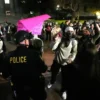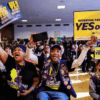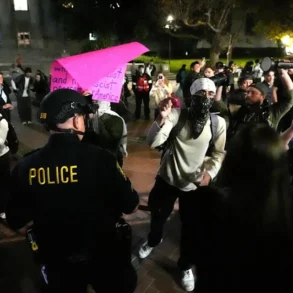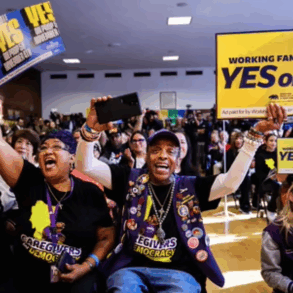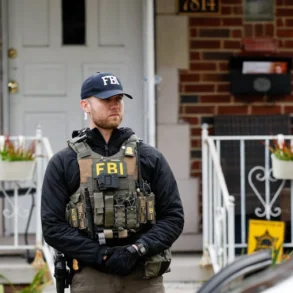On Thursday, August 21, 2025, President Donald Trump announced plans to join law enforcement and National Guard members on patrol in Washington, D.C., as part of his administration’s high-profile anti-crime initiative. The announcement, made during an interview with conservative radio host Todd Starnes, has sparked both attention and controversy in the nation’s capital. “I’m going to be going out tonight, I think, with the police, and with the military, of course,” Trump said, adding, “We’re going to do a job.” Details about the patrol, such as the time, location, or whether Trump will leave his armored motorcade, remain unclear, with the White House offering no immediate confirmation.
The president’s decision comes after his administration declared a “public safety emergency” on August 11, 2025, allowing him to take temporary control of the D.C. Metropolitan Police Department under the District of Columbia Home Rule Act. Since then, hundreds of federal law enforcement agents from agencies like the FBI, DEA, and U.S. Marshals Service, along with 800 National Guard troops, including units from states like South Carolina, Ohio, and West Virginia, have been deployed across the city. The initiative has led to over 600 arrests, including 251 immigrants described as being in the country illegally, and the seizure of 86 illegal firearms, according to Attorney General Pam Bondi. The administration has also focused on clearing homeless encampments, with dozens removed since the operation began.
Trump’s move was prompted by an August 3 incident involving Edward Coristine, a former staffer of the Department of Government Efficiency, who was attacked during an attempted carjacking. Trump has used this and other incidents to justify his actions, claiming D.C. is plagued by “violent gangs” and “bloodthirsty criminals.” He has dismissed official crime statistics as “phony,” arguing that the city’s safety has deteriorated. On his Truth Social platform, he wrote, “People that haven’t gone out to dinner in Washington, D.C. in two years are going out to dinner,” suggesting his efforts have restored safety. However, local reports indicate restaurant reservations have dropped by nearly a third since the federal presence increased.
Despite Trump’s claims, D.C. officials, including Mayor Muriel Bowser, have pushed back, citing data showing violent crime has dropped significantly. According to the Metropolitan Police Department, violent crime in 2025 is down 26% from 2024, with robberies down 28% and homicides at their lowest since 2019. The Justice Department notes that 2024 saw violent crime in D.C. reach a 30-year low. Bowser called Trump’s takeover “unsettling and unprecedented” but acknowledged the city has little choice but to cooperate under current law. She emphasized that the city has been addressing crime effectively, stating, “We are not experiencing a crime spike.”
The federal takeover has sparked protests across D.C., with residents chanting “hands off D.C.” and “protect home rule.” A Washington Post-Schar School poll found that 79% of D.C. residents oppose Trump’s control of the police department, and 65% believe his actions won’t make the city safer. Critics, including Democratic lawmakers like Rep. Jamie Raskin, have called the move a “political charade” and an overreach of power, with some filing lawsuits to challenge it. D.C. Attorney General Brian Schwalb has argued that the administration’s actions are unlawful, though a recent attempt to install a federal official as police chief was blocked in court.
The deployment of National Guard troops, some armed, has raised concerns about the militarization of law enforcement. Experts note that using the Guard for routine policing deviates from its traditional role, with the Posse Comitatus Act limiting military involvement in domestic law enforcement. Unlike governors in other states, the president has direct control over D.C.’s National Guard, a power Trump has leveraged before, notably during the 2020 racial justice protests. The current operation, set to last until September 10 unless extended by Congress, has no clear exit strategy, prompting fears of prolonged federal control.
Trump’s patrol follows a visit by Vice President JD Vance, Defense Secretary Pete Hegseth, and deputy chief of staff Stephen Miller to National Guard members at Union Station, where they faced boos from protesters. The administration has framed the crackdown as “bold leadership,” but local leaders and residents worry it prioritizes optics over addressing root causes like affordable housing. As Trump prepares to join patrols, the city remains divided, with some residents feeling safer and others viewing the federal presence as an authoritarian overreach.

